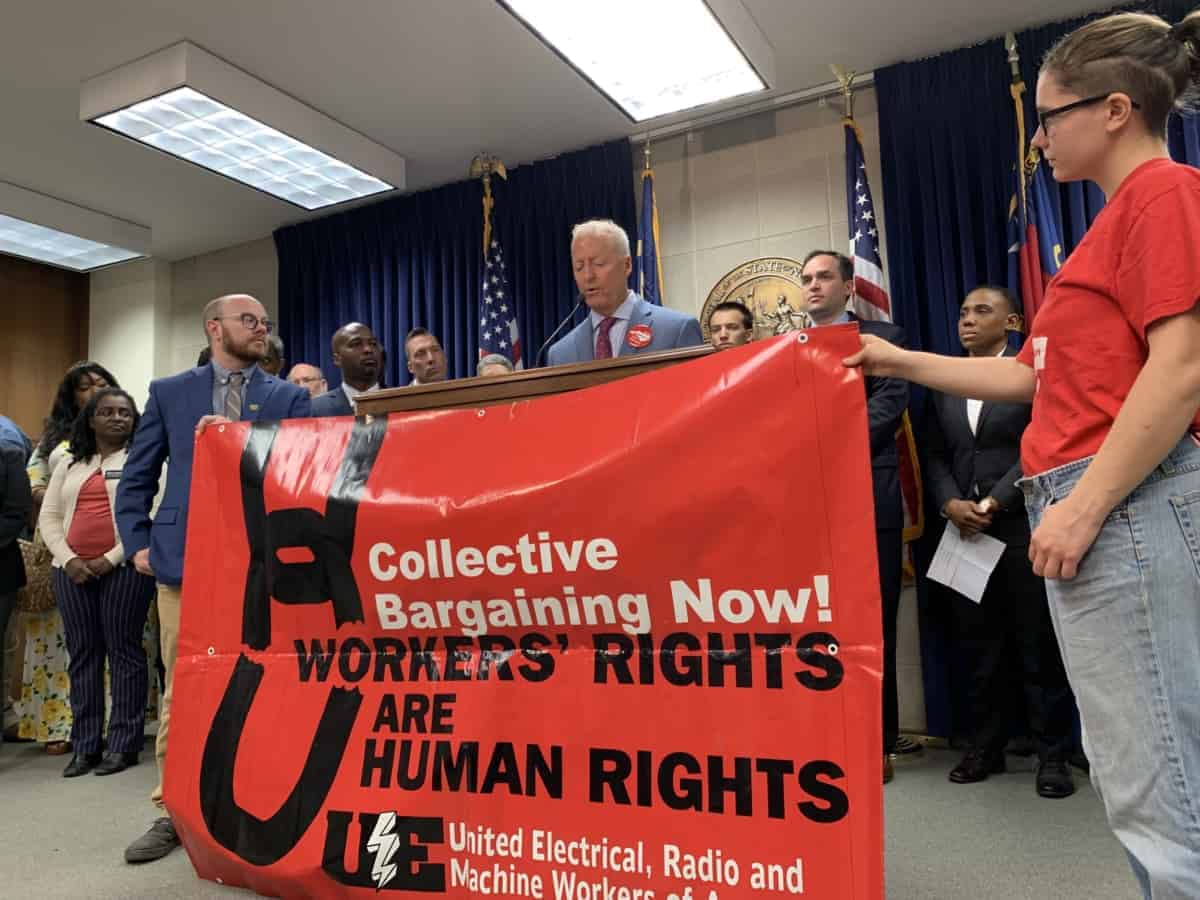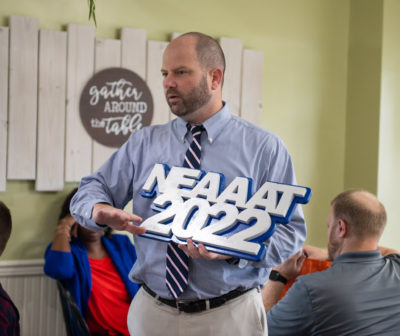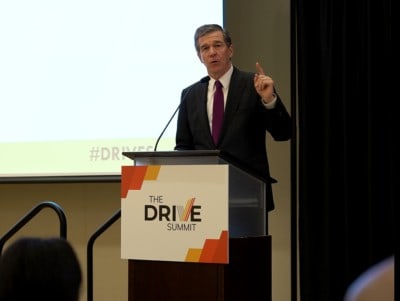
North Carolina is one of three states that prohibit public employees from collective bargaining. The 1959 law, N.C.G.S. 95-98, impacts more than 600,000 public employees in the state, and under Senate Bill 575 and companion House Bill 710, the 60-year-old law would be repealed. On Wednesday, SB 575 sponsor Sen. Wiley Nickel, D-Wake, and HB 710 sponsor Rep. Zach Hawkins, D-Durham, joined Mayor Don Hardy of Kinston, council members from Durham and Winston-Salem, and workers from around the state to speak on the benefits of collective bargaining — an avenue, they said, to fairness, equality, and justice.
Among those speaking Wednesday was MaryBe McMillan, president of the state’s AFL-CIO, who remembered Martin Luther King Jr., and spoke of his assassination on April 4, 1968, which occurred while he marched for the collective bargaining rights of sanitation workers in Memphis.
“And here we are over half a century later,” she said, “and sanitation workers in North Carolina still don’t have that. That is shameful. And it must change.”
Advocates said they were there for first responders, like firefighters and police officers. They said they represented public sector workers. And, several said, they were there to advocate for teachers. A Winston-Salem councilman spoke of his daughter-in-law who is a teacher. A retired postal worker spoke of his grandmother, mother, and aunt who were all public school teachers.
“Collective bargaining gives educators a voice in their workplace,” said Mark Jewell, president of the North Carolina Association of Educators. “It not only helps assure fair wages and benefits, but it can also improve teaching and learning conditions. That means everyone connected to the school — our students our teachers, our education support professionals, our administrators, and our tax payers all benefit. Teachers’ working conditions and student learning conditions also improve by addressing school and classroom issues.”
Since the 1930s, private sector employees in North Carolina have had the right and ability to collectively bargain. That right was statutorily taken from public employees in 1959 by General Statute 95-98. The bill was filed in 1958 in response to attempts by Mecklenburg police officers to unionize. However, fueling much of the debate around the bill was fear of former teamster head Jimmy Hoffa coming into North Carolina. Upon passage, 95-98 made unionizing and collective bargaining by public employees a misdemeanor punishable by up to two years imprisonment.
On Wednesday, several advocates spoke on what they perceive as dangerous outcomes under the law, where they say government agencies cannot effectively communicate with their employees about safe working conditions for fear that they may induce employees into committing a misdemeanor.
“The idea behind Senate Bill 575 is simple: North Carolina public employees deserve a seat at the table,” Nickel said. “… Senate Bill 575 would help our teachers, our police officers, firefighters, cafeteria workers, our school bus drivers, and all the rest of our public sector state employees. It will mean better pay, better benefits, and it will mean better working conditions and safer working conditions for all of those employees.”
Added McMillan: “This is not just about better pay and better benefits. But it’s being able to sit down and actually talk about how you can make the workplace run more efficiently so that you’re better serving the citizens of your state or your city of your county.”
Nickel, Hawkins and Hardy all said that the repeal of 95-98 would not make collective bargaining mandatory, nor would it make it permissible for public employees to strike. What it would do, they said, is open up doors of communication between employers and employees, allowing employees to give voice to the things they want and call attention to conditions that threaten their safety.
“This bill will help to ensure that our state government functions efficiently and effectively,” Nickel said. “Unionized employees are less likely to leave their job, meaning less turnover and lower training and recruitment costs for the state. It would also allow us to have a better and more experienced state workforce.”
Recommended reading



